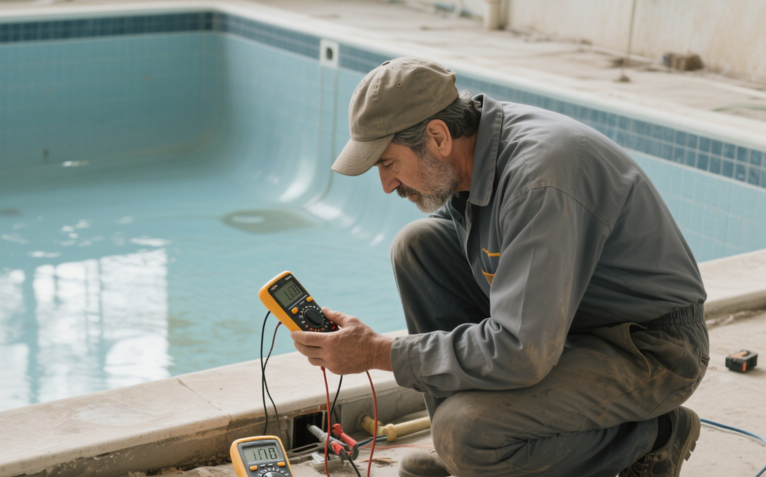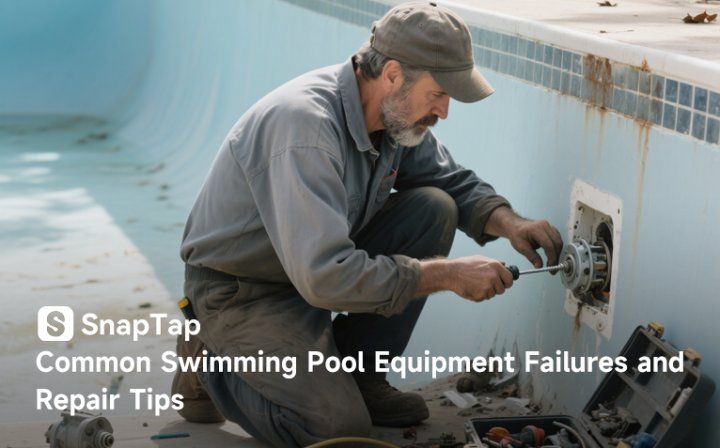Maintaining and repairing swimming pool equipment is a critical part of ensuring clean water quality and safe usage. When equipment fails, it can disrupt normal pool operations, lead to water contamination, increased energy consumption, and even more extensive repair issues. Therefore, understanding common equipment failures and how to fix them is essential knowledge for any household or commercial property with a swimming pool.
Among the most frequent problems encountered in daily maintenance are non-starting pumps, malfunctioning filtration systems, and heaters that fail to warm the water. If the pool pump fails to start or runs weakly, it may be due to a damaged motor, loose power connection, or a clogged impeller. When the pump stops working, water circulation ceases, causing rapid deterioration in water quality. Filtration system issues usually present as cloudy water, unpleasant odors, or excessive debris. These problems may be caused by expired filter sand, clogged cartridges, broken valves, or blocked return lines. Additionally, heating system failures are common, especially in regions with larger temperature fluctuations. These may be due to scale buildup, aging heating elements, or malfunctioning sensors. Other auxiliary systems, such as automatic cleaners or ozone sanitizers, may also develop issues, impacting overall cleanliness and hygiene.

When dealing with these problems, it's important to determine whether a repair or replacement is the better option. Smaller issues—such as worn pump seals, stuck filter valves, or faulty capacitors—can typically be resolved with simple and affordable repairs. However, if the equipment is old, frequently breaks down, or has significantly reduced energy efficiency, replacing it may be more economical. In general, pump impellers should be inspected every 3 to 5 years, filter sand should be replaced approximately every 5 years, and core heating components like heat exchange tubes should be professionally assessed every 6 to 8 years.
Professional inspection plays a key role in extending the lifespan of your pool equipment. Technicians use tools like current meters, voltage testers, and flow gauges to detect hidden faults before they develop into major problems. Regular maintenance—including pump cleaning, filter replacement, and removal of scale and biofilm—not only improves system efficiency but also reduces energy costs. For those without the necessary expertise, it's recommended to hire a trusted pool repair service provider for professional, efficient, and safe support.
In conclusion, pool equipment failures are manageable if problems are identified early and addressed properly. Through routine care, timely repairs, and smart investment, you can keep your pool in top condition throughout every season. Whether for private or public use, functional equipment is essential for user comfort and safety. If you notice any irregularities in your pool system, don't hesitate to contact a professional team for inspection and maintenance to ensure long-term, efficient, and safe pool operation.


